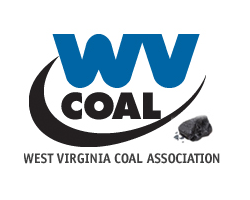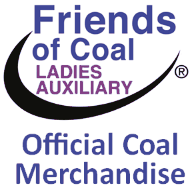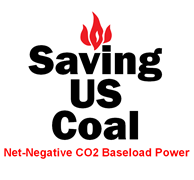WVCA Joins AG McCuskey in Press Conference Re. New York Challenge

February 7, 2025 - Below is a message from Chris Hamilton, President, West Virginia Coal Association:
Earlier today Jason and I joined WV’s Attorney General JB McCuskey in a press conference announcing West Virginia’s lawsuit against the State of New York and its new Climate superfund Legislation. Below is a copy of the AG’s press release and video of the press conference. Also below is a copy of the Association’s press statement.
Background of New York Litigation: On December 26, 2024, New York Governor Kathy Hochul signed into law the "Climate Change Superfund Act," which seeks "to establish a climate change adaptation cost recovery program that will require companies that have contributed significantly to the buildup of climate change-driving greenhouse gases in the atmosphere to bear a proportionate share of the cost of infrastructure investments and other expenses necessary for comprehensive adaptation to the impacts of climate change in New York state." New Jersey has introduced similar legislation known as the "Climate Superfund Act."
These new environmental laws may be even more significant in the wake of the U.S. Supreme Court's decision to allow a Hawaii state case seeking billions of dollars from fossil fuel producers to move forward. The Court recently denied certiorari, thereby clearing the way for the case to continue in Hawaii state court and potentially indicating the justices' intent to allow state-law climate change cases to proceed.
New York's Climate Change Superfund Act (Act) is now law. The Act, which is modeled after federal Superfund laws, seeks to transfer the costs of addressing climate change from local governments and taxpayers to fossil fuel companies that have contributed most significantly to the buildup of greenhouse gases. As stated by the New York Legislature, its intent is to hold "companies that have contributed significantly to the buildup of climate change-driving greenhouse gases in the atmosphere to bear a proportionate share of the cost of infrastructure investments and other expenses necessary for comprehensive adaptation to the impacts of climate change in New York state."
Under New York's Climate Change Superfund Act, strict liability is imposed on "responsible parties," which are defined as those entities, including successors, that the New York State Department of Environmental Conservation (NYSDEC) determines to be responsible for more than one billion tons of greenhouse gas emissions during any part of the period from Jan. 1, 2000, to Dec. 31, 2018. Responsible parties will collectively be required to pay $75 billion ($3 billion annually) spread out over 25 years. Each party's liability is proportionate to its share of the aggregate covered greenhouse gas emissions.
The NYSDEC is tasked with adopting implementing regulations to carry out the law, including the identification of responsible parties, the procedures for issuing notices of cost recovery demands and collecting payment on those demands, and procedures for identifying projects that would qualify as climate change adaptive infrastructure projects The agency must also adopt a "statewide climate change adaptation master plan for the purpose of guiding the dispersal of funds in a timely, efficient, and equitable manner to all regions of the state."
Overview of New York’s Cost Recovery Program and West Virginia’s Complaint. To prepare for potential climate-change-related harm, New York passed a Climate Change Adaptation Cost Recovery Program. It seeks a total of 75 billion dollars earmarked for any climate-change adaptation project. To fund the projects, New York holds any company extracting or producing fossil fuels strictly liable if they have a sufficient constitutional nexus to New York and if they have produced over a billion metric tons of greenhouse gas emissions in an eighteen-year period (January 1, 2000 – December 21, 2018). Liable companies will have to pay New York for their proportional share of greenhouse gas emissions.
For West Virginia’s and coal country’s harms, West Virginia and its citizens depend on energy; New York’s Program will likely increase those energy costs. Further, West Virginia has an interest in its sovereignty, giving it regulatory power within its jurisdiction; New York’s Program likely undercuts that sovereignty. West Virginia’s Complaint seeks to enjoin New York’s Program based on the following alleged harms:
· Count I: The Act is preempted for interfering with the Constitution’s aim of maintaining
equal sovereignty and comity between the states and preventing state actions from conflicting with federal foreign affairs.
· Count II: The Act is preempted under the Clean Air Act for interfering with a field
reserved for the federal government.
· Count III: The Act violates the Commerce Clause for burdening and discriminating
against interstate commerce. It also violates the Foreign Commerce Clause for acting as a regulation on foreign companies.
· Count IV & V: The Act violates the Federal and New York Due Process Clauses for its inherently unfair retroactive application.
· Count VI: The Act violates the Excessive Fines Clause for being retributive and
demanding a grossly disproportionate amount of money.
· Count VII & VIII: The Act violates Federal and New York Takings Clauses for being an unconstitutional regulatory taking.
Attorney General McCuskey leads multistate lawsuit against New York’s Climate Superfund Act
West Virginia Attorney General JB McCuskey is leading a coalition of 22 attorneys general in a lawsuit challenging New York State’s Climate Superfund Act, a recently signed state law attacking America’s energy suppliers.
The Act could impose $75 billion of liability on major fossil fuel companies by requiring them to pay into a state “climate Superfund” based on their past greenhouse gas emissions.
The Climate Superfund Act punishes a group of energy producers for global greenhouse gases emitted from all sources into the atmosphere from 2000 to 2018. The Attorney General pointed out New York relied on coal, oil and natural gas during that time, keeping the lights on for New York City’s iconic skyscrapers and beyond.
“The iconic New York City skyline was built with the blood, sweat and labor of the men and women of our coalfields -- from the steel in their skyscrapers, down to the electricity they use every day. The level of ungratefulness from the elites in New York for the sacrifices that continue to be made to give them the lavish lifestyle they enjoy is beyond the pale. This lawsuit is to ensure that these misguided policies, being forced from one state onto the entire nation, will not lead America into the doldrums of an energy crisis, allowing China, India and Russia to overtake our energy independence,” Attorney General McCuskey said.
The lawsuit points out the law will be devastating to traditional energy producers, including coal producers in West Virginia, leaving them with no other option than to cease operations, resulting in massive job losses.
“This law is unconstitutional, and I am proud to lead this coalition of attorneys general and brave private energy companies and industry groups in our fight to protect against this overreach. If we allow New York to get away with this, it will only be a matter of time before other states follow suit – wrecking our nation’s power grid,” McCuskey said.
Proceeds from New York’s Superfund are earmarked for “climate change projects” like storm water systems, road and transit projects and wetland restoration.
The civil lawsuit, filed Thursday in the U.S. District Court for the Northern District of New York Albany Division, lists New York Attorney General Letitia James, Interim Commissioner of the New York State Department of Environmental Conservation Sean Mahar and Acting Tax Commissioner (New York State Department of Taxation and Finance) Amanda Hiller as defendants. The coalition is asking the court to, among other things, issue an injunction and declare the Act preempted by federal statutes.
Joining McCuskey in the lawsuit are attorneys general from Alabama, Arkansas, Georgia, Idaho, Iowa, Kansas, Kentucky, Louisiana, Mississippi, Missouri, Montana, Nebraska, North Dakota, Ohio, Oklahoma, South Carolina, South Dakota, Tennessee, Texas, Utah and Wyoming. Alpha Metallurgical Resources, Inc., the West Virginia Coal Association, the Gas and Oil Association of West Virginia and America’s Coal Associations are also joining in the fight.
Read a copy of the lawsuit here.
Watch a playback of Thursday’s news conference here.
|

|
West Virginia Coal Association
200 Association Dr. Suite 160, Charleston WV 25311  (304) 342-4153 (304) 342-4153  Fax 342-7651 Fax 342-7651
www.wvcoal.com
____________________________________________________________
_____________________
|
FOR IMMEDIATE RELEASE
February 6, 2025
CONTACT:
Chris Hamilton
(304) 342-4153
Statement from WV Coal Association President Chris Hamilton Regarding AG McCuskey’s Lawsuit Against the State of New York
Charleston, W.Va. – Following Attorney General JB McCuskey’s announcement today that West Virginia is leading 22 other states in a lawsuit against the State of New York over its recently passed “Climate Superfund” legislation, Chris Hamilton offered the following statement:
“On behalf of the West Virginia Coal Association, I’d like to express how proud we are to stand shoulder-to-shoulder with Attorney General McCuskey in support of his suit against the State of New York. And we are thankful he has taken the lead against this draconian law.
New York is attempting to usurp federal law and the federal agencies charged with oversight of this country’s energy-related industries. Like New York, there are many states that want to see a transition to alternative energy sources in an unrealistically short amount of time. Fossil fuels represent the majority of power generation in the United States, which provides for the quality of life we all enjoy.
We greatly appreciate Attorney General McCuskey efforts. He is a part of the new political leadership team that has taken office on the state and national level that’s not going to sit back and be dealt a bad hand by other states or the federal government.”
For additional information, contact Chris Hamilton at (304) 342-4153.




























 (304) 342-4153
(304) 342-4153